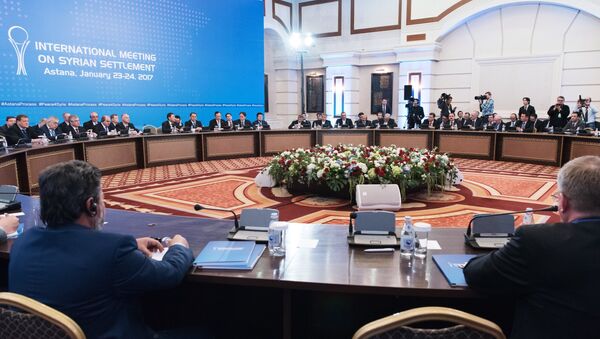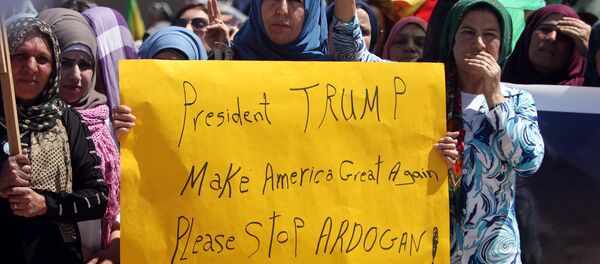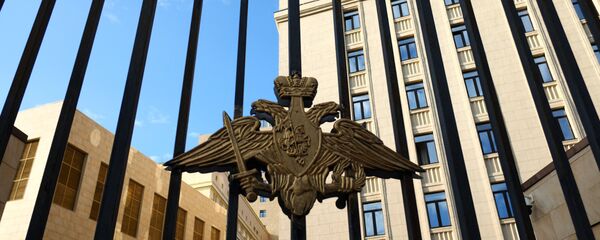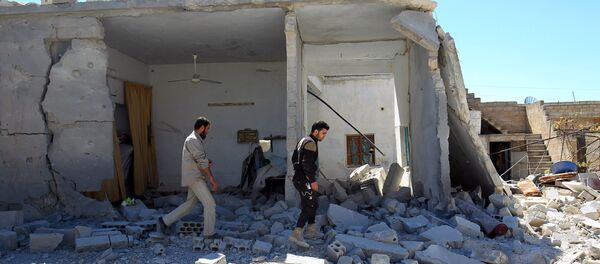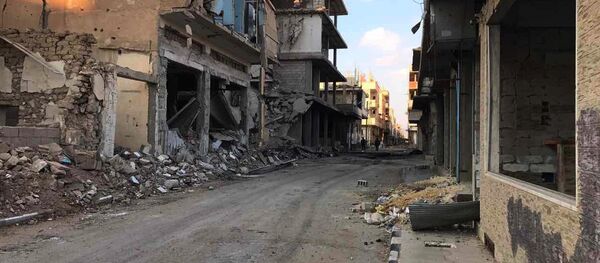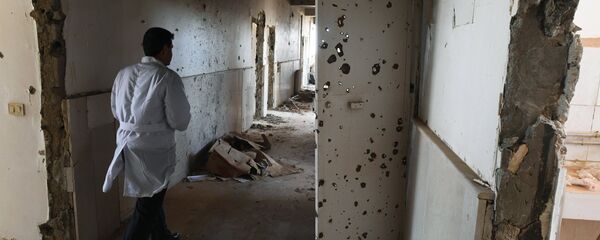MOSCOW (Sputnik) — On December 14, 2016, Russian President Vladimir Putin spoke by phone with Turkish President Recep Tayyip Erdogan. The two leaders agreed to suggest that the Syrian warring sides continue the peace process at a new venue, alongside Geneva. Russia made this proposal to the Syrian government, and Turkey acted likewise with representatives of the armed opposition. Astana was named as the new venue.
On December 20, 2016, the Foreign Ministers of Iran, Russia and Turkey, after their talks in Moscow, issued a joint statement on measures to invigorate the peace process for ending the Syrian conflict. In this document, the parties voiced their readiness to help draft the future agreement between the Syrian government and the opposition, which is currently being negotiated, and to act as the document’s guarantors. They invited all other countries, which have influence on the situation on the ground, to do the same.
The talks in Astana are called upon to formalize the current ceasefire regime, established under the December 29, 2016 agreements, and to serve as a venue for direct dialogue between the government and the opposition under the provisions of UN Security Council Resolution 2254.
On January 23–24, 2017, Astana hosted the first round of talks on Syria. During the negotiations, Damascus representatives and the armed opposition sat together at the negotiation table the first time since the beginning of Syrian civil war in 2011.
Apart from the government delegation and armed groups, the Astana talks involved representatives of Russia, Turkey and Iran serving as guarantors of the ceasefire agreement, and UN representatives. The Russian diplomatic and military delegation in Astana included Special Presidential Representative for Syria Alexander Lavrentyev, Director of the Foreign Ministry’s Middle East and North Africa Department (MENAD) Sergei Vershinin and Stanislav Gadzhimagomedov, Deputy Chief of the Defense Ministry’s Main Operations Directorate. The Turkish delegation was headed by the Foreign Ministry’s Deputy Undersecretary Sedat Onal. Deputy Iranian Foreign Minister Hossein Jaberi Ansari represented Tehran’s interests during the consultations. UN and Arab League Envoy to Syria Staffan de Mistura also attended the talks. US Ambassador to Kazakhstan George A. Krol was present at the event as an observer.
During the opening ceremony, the parties to the consultations spent the first few hours behind a large round table. Meeting organizers deliberately decided not to provide any separate signs for official Damascus and the opposition, simply calling both parties as the "Syrian Arab Republic."
It proved impossible to convince the sides to hold direct consultations that would not involve guarantor countries of the ceasefire agreement. Both Syrian delegations therefore engaged in indirect talks.
An agreement to establish a mechanism for monitoring the Syrian ceasefire by Russia, Iran and Turkey came as one of the main military results of the talks. And the parties made headway on disengaging the opposition and terrorist groups. Earlier, repeated attempts failed to reach a similar agreement with the United States. For example, military negotiators managed to coordinate demarcation lines with Daesh and also moved to determine the locations of al-Nusra Front terrorists.
On February 6, Astana hosted the first meeting of the joint group, established under agreements reached during the January 23–24 international meeting on Syria in Astana. Russian, Turkish and Iranian experts discussed the fulfillment of agreements on the Syrian ceasefire, the monitoring mechanism and confidence-building measures.
On February 15–16, 2017, Astana hosted the second round of talks to resolve the conflict in Syria.
The talks involved delegations of guarantor countries. Jaafari headed the Syrian government delegation. Allush headed the nine-person opposition delegation. Jordanian and US representatives were invited as observers, and a five-person UN delegation also attended the talks.
Some participants were particularly concerned with the level of representation of the Turkish delegation, headed by the Chief of the Turkish Foreign Ministry’s Directorate General of Middle East Affairs. Representatives of the armed opposition did not join the talks in Astana before February 16.
The final agreement on establishing the Syria ceasefire monitoring group involving Iran, Russia and Turkey became the main result of the second round of Astana talks. The Russian Foreign Ministry called the meeting a success, while representatives of the Syrian armed opposition voiced a pessimistic view of the talks. Nevertheless, they agreed with establishing the ceasefire commission but opposed Iran’s involvement in its work.
Despite objections from the Syrian opposition’s delegation regarding the participation of Iran voiced by Allush, a decision to establish a joint Russian-Iranian-Turkish group was adopted and formalized by a corresponding document.
On March 14–15, 2017, Astana hosted the third round of talks on the Syrian peace settlement.
Members of the Syrian armed opposition decided not to send their representatives to the talks.
The planned plenary meeting did not take place, because the Syrian armed opposition was absent. The parties therefore focused on multi-format consultations. They discussed and made headway on issues connected to the release of prisoners and reached a preliminary agreement on establishing a working group and on further disengaging the moderate opposition from terrorist groups: the parties coordinated their maps. In addition, they started discussing the complicated issue of establishing a constitutional commission and raised the entirely new issue of possible joint efforts of various countries to restore damaged ancient Syrian monuments, including the legendary city of Palmyra.
Some meetings were held already after the talks.
A novel move in these discussions came when the Russian delegation met with US representatives. Syria Opposition Outreach Desk Officer Martin Maxwell from the US State Department arrived in Astana for the first time.
After the talks, Russia, Turkey and Iran reaffirmed their commitment to the Syrian political settlement and underscored the importance of the third round of Astana talks for the Geneva process.
On April 18–19, Tehran hosted a meeting of a group of experts from guarantor countries of the Syrian ceasefire, with UN involvement.
